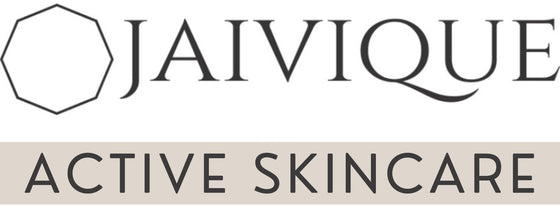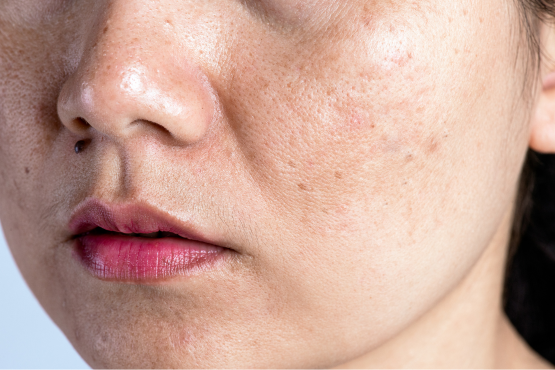Pigmentation is a common skin concern that can affect people of all ages and skin types. Dark spots, uneven skin tone, and hyperpigmentation can significantly impact one's self-confidence. To address this issue effectively, it is important to understand the causes of pigmentation and explore the available treatment options.
In this blog, we will delve into the fascinating world of pigmentation, examining its various causes and discussing potential treatments for achieving a more even and radiant complexion.
Understanding Pigmentation
Pigmentation refers to the coloring of the skin, which is determined by the production of a pigment called melanin. Melanin is produced by specialized cells called melanocytes, which are responsible for giving our skin its unique color. When melanocytes become overactive or produce an excess amount of melanin, it can lead to the formation of dark spots or patches on the skin, known as hyperpigmentation.
Causes of Pigmentation
Sun Exposure: Prolonged exposure to the sun's harmful ultraviolet (UV) rays is a significant contributor to pigmentation. UV radiation triggers the production of melanin as a natural defense mechanism, resulting in sunspots or freckles.
Hormonal Factors: Hormonal fluctuations, such as those occurring during pregnancy (melasma or "mask of pregnancy") or while taking oral contraceptives, can stimulate melanocytes and cause pigmentation irregularities.
Post-Inflammatory Hyperpigmentation (PIH): Inflammation resulting from acne, injuries, or skin conditions like eczema can trigger the production of excess melanin, leading to dark spots in the affected areas.
Aging: As we age, our skin undergoes natural changes, including a decrease in melanocyte activity. However, areas of increased melanin production can still occur, resulting in age spots or solar lentigines.
Treatment Options for Pigmentation
Sun Protection: The first line of defense against pigmentation is sun protection. Regularly applying broad-spectrum sunscreen with a high sun protection factor (SPF), seeking shade, and wearing protective clothing can help prevent further darkening of existing pigmentation and minimize the risk of new spots forming.
Topical Treatments: There are various topical treatments available that can help reduce pigmentation. Ingredients like niacinamide, cica, vitamin C, and BRIGHT Oléoactif® can be effective in lightening dark spots and promoting a more even skin tone.
Chemical Peels: Chemical peels involve the application of a chemical solution to the skin, which exfoliates the outer layers, promoting cell turnover and fading pigmentation. Different types of peels, such as alpha hydroxy acids (AHAs) and trichloroacetic acid (TCA), can be used to target specific types and depths of pigmentation.
Laser and Light Therapies: Laser and light-based treatments, such as intense pulsed light (IPL) and fractional lasers, can effectively target pigmentation by breaking down excess melanin in the skin. These treatments stimulate collagen production and encourage the growth of new, healthier skin cells.
Microneedling: Microneedling involves the use of tiny needles to create controlled micro-injuries in the skin. This process stimulates collagen production and can help improve pigmentation irregularities by promoting the turnover of skin cells.
Prevention and Lifestyle Measures
Preventing pigmentation is crucial to maintain a healthy and even complexion. Alongside the treatment options mentioned above, incorporating the following preventive measures and lifestyle changes can help minimize the occurrence of pigmentation:
Wear Sunscreen: Applying sunscreen with a high SPF daily, even on cloudy days, helps protect your skin from harmful UV rays and prevents further pigmentation.
Avoid Excessive Sun Exposure: Limit your time in the sun, especially during peak hours when the sun's rays are strongest. Seek shade, wear protective clothing, and use accessories like hats and sunglasses for added protection.
Use Gentle Skincare Products: Harsh or abrasive skincare products can irritate the skin and potentially worsen pigmentation. Opt for gentle cleansers, moisturizers, and exfoliants that suit your skin type.
Treat Inflammatory Skin Conditions: Promptly treat any inflammatory skin conditions, such as acne or eczema, to prevent post-inflammatory hyperpigmentation.
Maintain a Healthy Lifestyle: A well-balanced diet rich in antioxidants, vitamins, and minerals can support overall skin health. Stay hydrated, get enough sleep, and manage stress levels as they can affect the skin's appearance.
Conclusion
Pigmentation is a common skin concern that can affect individuals of all backgrounds. Understanding the causes and treatment options is essential for achieving a more even complexion. From sun protection and topical treatments to more advanced therapies, various options are available to address pigmentation.
Adopting preventive measures and a healthy lifestyle can complement these treatments and help maintain a radiant and balanced complexion. Remember, consulting with a dermatologist or skincare professional is crucial to determine the most suitable approach for your specific pigmentation concerns.
Embrace your skin's uniqueness and take steps to achieve the healthy, glowing complexion you desire.



